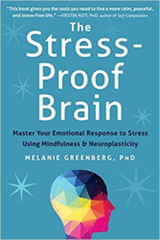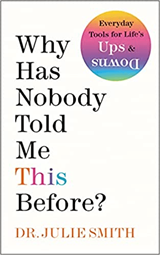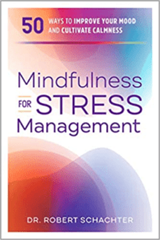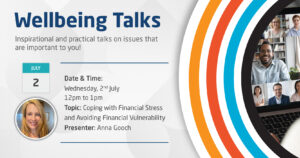News
Anxiety is an all-too-familiar and unwelcome experience of being human. Virtually everyone will feel it, in some form or another, throughout their lives. And despite its unpleasantness, anxiety has served us very well in our evolutionary history. It kept our ancestors alive – primed to notice and respond to threats before it was too late.
But we’ve come a long way since our cave-dwelling days. And the problem is, your brain hasn’t gotten the memo yet. Modern-day concerns can trigger the same anxiety, and ironically, those feelings aren’t all that dissimilar from our ancestors’ fear of a potential predator lurking in the shadows.
For example, an unexpected meeting from your boss popping up on your calendar may be a threat (and cause anxiety as a result), but it’s unlikely the life-or-death situation your emotions are suggesting it is.
So in a modern context, anxiety can often be counterproductive, especially if you’re one suffering from anxiety disorders. If we’re overly stressed and worrying about every little thing, it becomes incredibly challenging, if not impossible, to perform well. And this affects us both at work or in our personal lives.
However, mental health professionals have long advocated for grounding techniques to help individuals calm down and alleviate anxiety when it starts to spiral. One of the simplest, yet most effective, of these panic and stress management exercises is called the 54321 method (sometimes stylized as 5-4-3-2-1 grounding technique).
The 54321 technique is a grounding exercise that helps individuals manage anxiety, panic attacks, or feelings of being overwhelmed. It works by redirecting attention to the present moment and using sensory experiences to help a person reconnect with their surroundings.
What is mindfulness?
Mindfulness is about noticing what’s happening right now and being aware of the present moment. We can do this by using our senses to explore the world around us. Mindfulness helps us to focus, regulate our emotions and help us to respond rather than react.
How can mindfulness help us?
Mindfulness can help us to deal with things in a calmer way and can help us with decision making and problem solving. People who practice mindfulness are likely to sleep better, be more focused and aware. Mindfulness can also help us to be kinder and more compassionate, as well as helping us to build relationships with others.
5-4-3-2-1 grounding is a great way to practice mindfulness as it is an exercise that can be done anywhere at any time and doesn’t require any equipment. Grounding is a really good way of helping us to manage our emotions when we are feeling really overwhelmed but can also be used every day to help us regulate.
Imagine that each of us has an “emotions bucket”. Every day things happen that fill up our bucket, this could be stress of school work, fall outs with friends and anything else that makes us feel sad or worried. Eventually our bucket becomes so full that we just can’t carry it around anymore and it starts to overflow. When this happens we may start to feel really overwhelmed and like we can’t cope. Practicing grounding or mindfulness each day puts a tap on this bucket and helps us empty it a little bit each time we practice. This makes it harder for our buckets to overflow and makes it harder for us to feel overwhelmed. Mindfulness is really useful for helping us to focus on the present moment.
How to do 5-4-3-2-1 grounding
- Look around and name five things that you can see around you. These could be a picture on the wall or a plant in the house. Think about the colours and shapes of what you are looking at. What do you like about it? What don’t you like about it?
- Focus on four things that you can feel. This could be the chair you are sitting on or the feel of your clothes on your skin. Think about how they feel, are they soft or hard? Smooth or rough? Cold or warm?
- Name three things that you can hear around you. You may be able to hear people outside or the wind blowing. Think about how loud or quiet the noises are. Are they noises you hear often?
- Notice two things that you can smell around you right now. This could be a flower, the smell of your clothes or the shampoo in your hair. Think about what you like about that smell.
- Focus on one thing that you can taste. If you can’t taste anything, then instead you can choose your favourite thing to taste.

Psychologist Melanie Greenberg discusses holistic and scientific ideas about the way the brain works. Her innovative book helps us think about and develop emotional resilience.

This book offers compassionate advice and insight into the most common mental health issues, including coping with stress, drawn from Dr Smith’s years as a clinical psychologist. It offers coping techniques and resilience-building exercises to help stressed readers navigate life’s ups and downs while still maintaining a level of content and peace.

Mindfulness, like any other skill, takes practice and time. This workbook is designed to help you do exactly that. It provides 50 ways to relax and manage your stressful emotions so you can continually find peace, even in difficult times.

